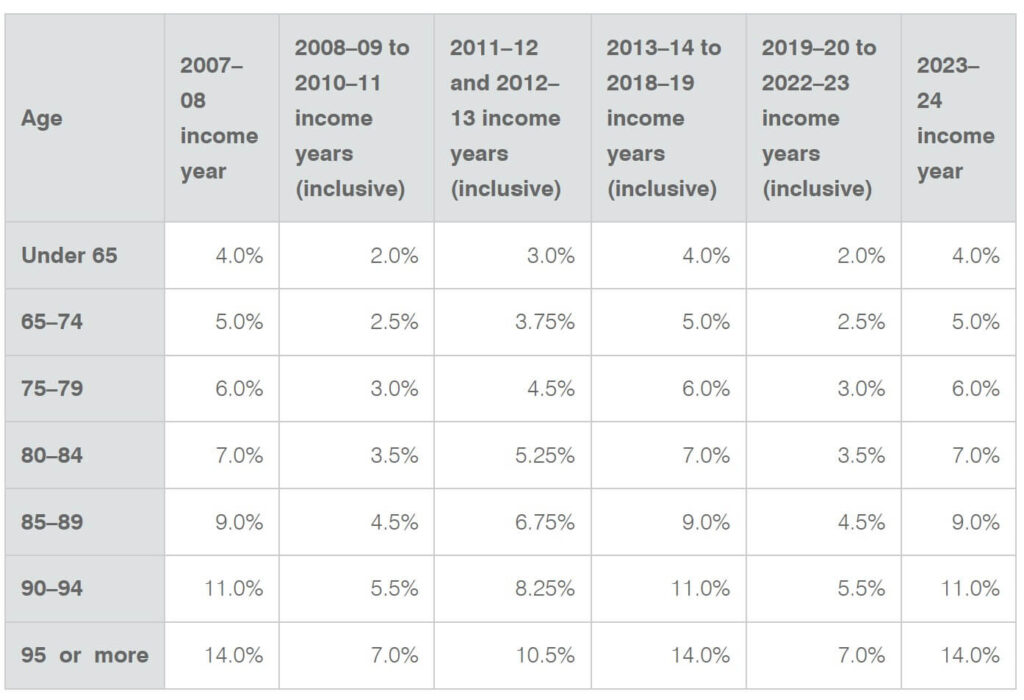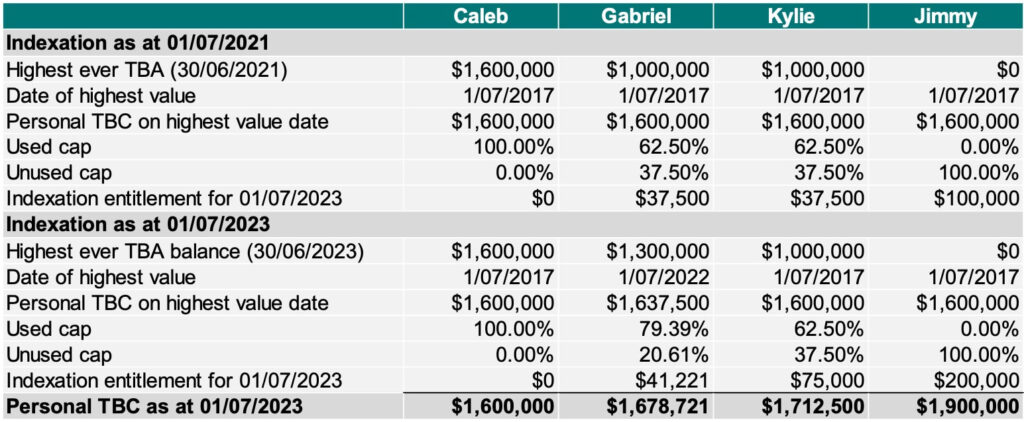Now that the new financial year is well underway, we’ve had an opportunity to observe how changes to superannuation are playing out and what impact they have had on retirees.
To recap, there have been two major changes – an end to the 50 per cent reduction in the minimum pension drawdown rate, which was introduced during the pandemic to provide financial relief during the market downturn, and changes to how the Transfer Balance Cap is indexed.
While neither change requires urgent action, it is important that retirees recognise where adjustments are being made so they can properly manage their retirement savings.
Minimum pension drawdown rate
For the past four financial years, the minimum drawdown rate has been significantly discounted from the rates that most retirees were familiar with up until 2018-19.
In effect, the minimum rate has been doubled for the 2023-24 financial year, but this change brings it back into line with 2018-19 rates before the pandemic-induced discount was applied.
Retirees now need to draw down twice as much from their super annually as they had in recent years, as this table demonstrates:
Minimum percentage of account balance factors, by age

The trustee of public offer funds will generally make sure this minimum is met, but superannuation holders must be alert to the impact it may have on their balance. This can help avoid being subject to trustee-directed sales, which may result in the unwanted disposal of an asset.
Beneficiaries of self-managed super funds (SMSF) should work closely with their advisers to meet the new minimums by increasing their regular withdrawals or taking a larger ad-hoc income payment.
If retirees don’t meet the minimum pension requirement each year, financial penalties may apply.
The Australian Taxation Office (ATO) may determine that the income stream has ceased for taxation purposes, which could result in all investment earnings being treated as assessable income for the fund.
Transfer Balance Cap
Introduced in July 2017, the transfer balance cap (TBC) limits the amount of superannuation that can be transferred into a superannuation income stream once an individual meets a condition of release.
The cap was designed to prevent individuals from holding excessive wealth in their tax-free superannuation accounts, and is indexed to ensure it keeps its real value over time.
A spike in inflation caused the general cap to climb $200,000 to $1.9 million on 1 July 2023, however not all individuals are entitled to the full indexation amount and each person has a personal TBC.
While the cap has been increased to $1.9 million, the ATO considers several factors when determining an individual’s entitlement, such as the financial year when your transfer balance account (TBA) is started and the highest ever balance in your TBA.
Consider the following examples in understanding how the indexation would apply across four situations, assuming a date of highest value at 1 July 2017:
- Caleb: started pension with $1.6 million balance, took a commutation of $200,000 on 1 April 2022.
- Gabriel: started pension with $1 million balance, commenced second pension of $300,000 on 1 July 2022.
- Kylie: started pension with $1 million and has not commenced any new pensions since.
- Jimmy: super balance of $1.5 million, not commenced a pension as he had not met a condition of release at the time. He will reach age 65 on 1 July 2023 and commence a pension, with his super balance having since grown to $1.9 million.
The following table shows each person’s TBC based on their circumstances:

Each person’s circumstances are unique, which is why it’s vital that individuals seek tailored advice specific to them when planning for, and during, their retirement.
While the rules can be complex to navigate, a little planning goes a long way to ensure retirees can take maximum advantage of the concessions available.
Keeping abreast of these changes allows retirees to look ahead and continue to have their desired cash flowing to their pension accounts in the most tax-effective manner.
How do these changes affect you? Have you had to revise your financial strategy as a result? Share your thoughts in the comments section below.
Also read: Tens of thousands of older Australians ‘gifting’ the tax office hard-earned funds
Andrew Wilson is a principal, wealth management, at Pitcher Partners Sydney.

